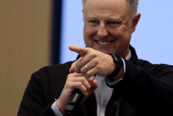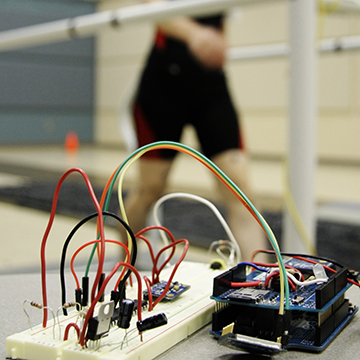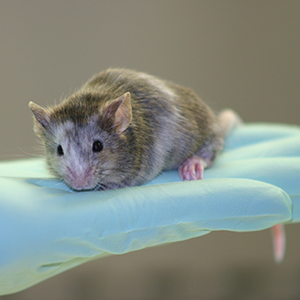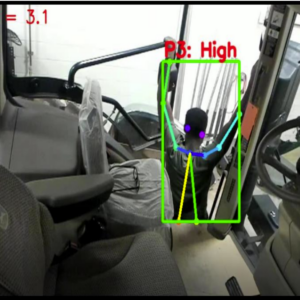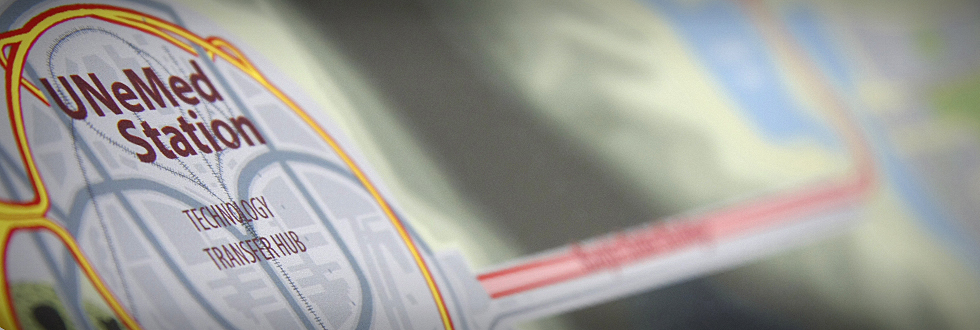
OMAHA, Neb. (January 22, 2018)—The University of Nebraska at Omaha and UNeMed, the technology transfer office at the University of Nebraska Medical Center, have signed a new services agreement for UNeMed to be the exclusive agent for UNO.
“We’ve worked with UNeMed in the past, and it always went well,” said UNO Associate Vice Chancellor Scott Snyder, PhD “We wanted to make that process easier and more efficient for everyone, and this arrangement does that.”
Dating back to the mid-1990’s, UNeMed has received about 50 new inventions from UNO inventors. Most UNO inventions, however, are more recent, emanating from UNO’s cutting edge Department of Biomechanics. Perhaps one of UNO’s more noteworthy innovations led to the creation of a new startup company, Avert, which promises to help athletic teams quickly and accurately diagnose concussions.
The new arrangement with UNeMed removes many institutional hurdles, allowing faculty, students and staff at UNO to work directly with the technology licensing experts at UNeMed.
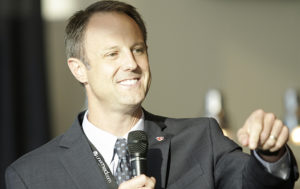
Michael Dixon
“This is perfect for us,” UNeMed president and CEO Michael Dixon said. “We have a long history of working with UNO, and many UNMC researchers have strong collaborative ties to UNO. Hopefully, this will allow us to partner more with UNO researchers and help develop their innovations into products that can have a positive impact in the market.”
Common at virtually every major university in the nation, technology transfer offices work to protect the discoveries, innovations and inventions of their researchers. Tech transfer offices like UNeMed help identify industrial partners that can bridge the funding gap between a discovery and a product on store shelves.
“To have the expertise and experience of the people at UNeMed at our disposal is a huge asset,” Snyder said. “This should be a huge boost for many of our faculty, students and staff that want to see their ideas developed into products that help people.”
Initially established in 1991 as the tech transfer office for the University of Nebraska Medical Center, UNeMed now serves all University faculty, students and staff at both Omaha campuses and the College of Dentistry in Lincoln. UNeMed’s sister office, NUtech Ventures, serves the remainder of the University’s resources in Lincoln and Kearney.
Working primarily with academic researchers and inventors, UNeMed protects University discoveries and innovations, securing 489 patents over the last quarter century. With 106 years of combined technology development and commercialization experience, UNeMed staffers help propel those innovations through development into products that help improve the lives of people everywhere.
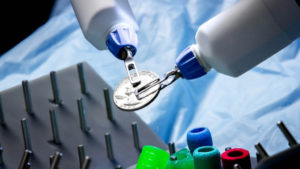
Virtual Incision’s robots are on the verge of transforming complicated, highly invasive open surgeries into relatively simple laparoscopic procedures.
Common routes to commercialization include establishing relationships with industrial partners for sponsored research agreements, signing licensing agreements with established commercial entities or building new startup companies. For example, a UNMC surgeon and a UNL engineer collaborated on a surgical robotic device to create Virtual Incision, a biomedical startup. Virtual Incision recently announced a successful Series B financing round of $18 million.
Virtual Incision is just one of 58 new startups UNeMed has help build in its 26-year history. UNeMed has also helped UNMC secure an additional $6.32 million in sponsored research while processing more than 1,330 new inventions from University faculty, staff and students.
Those 1,330 inventions eventually resulted in 230 licensing agreements over the years, which amounts to a track record that helped place the University of Nebraska 35th out of 230 in a recent report from the Milken Institute, a non-partisan think tank. The placement puts UNeMed, NUtech Ventures and the University of Nebraska in the top 15th percentile.
The 2017 report ranked the University of Nebraska’s tech transfer efforts ahead of such institutions as the Mayo Foundation (36), the University of Wisconsin (39), Ohio State University (55), and the University of Iowa Research Foundation (59), to name a few.


